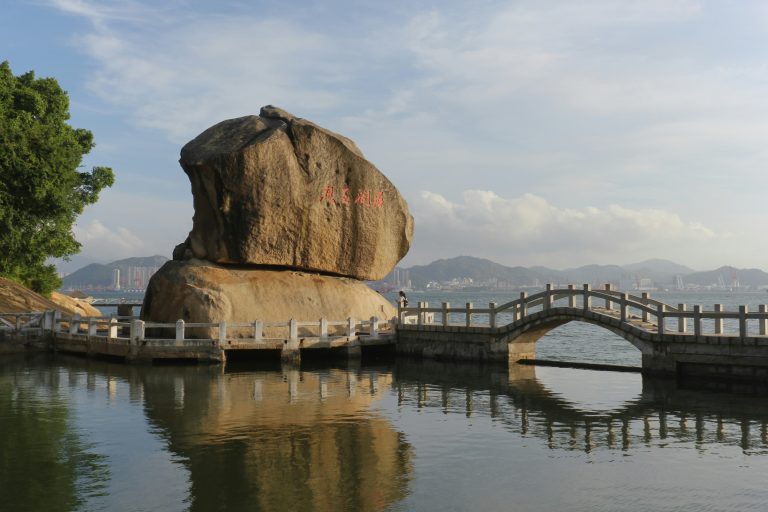
Editor’s note: China Partnership has launched a new chapter of its prayer initiative. Over the year we are praying for the church in a new city each month – providing videos, interviews, and prayer requests directly from the churches with whom we work. We hope this helps you better understand the needs of the Chinese church and commit more fervently to stand in prayer with our brothers and sisters.
This month we continue the project with Quanzhou. We’re excited to bring you this interview with a Chinese pastor in the city! We hope you will check out the Quanzhou page for additional content and to sign up to partner with us in prayer.
Pastor: Hi, my name means to reach God’s benchmark and advance with God’s army. I’m from Quanzhou in Fujian Province.
CP: What made you a church planter? Why is church planting so important?
Pastor: I think church planting is critical. When I first became a believer, I really enjoyed that sense of joy and peace. I started serving early on, but then I was entangled in religion and ministry, and I lost my strength in serving. The more I served, the less strength I had, and the more anxious I became. I could not let go.
I tried many methods and hoped that I could love the Lord more, because I found deep inside myself that I did not love the Lord. I tried different ways to pray harder, to read more scripture, even fasting and praying overnight. I tried many, many different things; yet, I still could not let go of the anxiety. I became very legalistic toward myself and toward others and suffered a lot from it.
To the extent that for a while I started to blame God: “Why would you dig such a hole and let me fall into it? I’m so miserable and helpless. It seems like I have to follow you this whole life, yet I do not see any hope in following you.”
>
”I found deep inside myself that I did not love the Lord.”
Then I encountered the gospel training and found lots of character traits of the Older Brother in myself: self-righteous, critical, and judgmental toward others and myself. It was a very hard time. I was meditating through the training and matured a lot during those three months.
Recently I studied Galatians for You, by Timothy Keller, and it was explosive for me, especially the doctrine of salvation that has had such an impact on me. I started to really understand that I am a son of God. Not only was I saved, redeemed, and forgiven, but I was granted sonship and equivalent privileges. I have been made completely righteous in Christ; I don’t have to acquire by law or by my behavior those values or the righteousness I once desired. This world no longer seemed attractive to me.
Paul says in Galatians 2:20, “I have been crucified with Christ. It is no longer I who live, but Christ who lives in me. And the life I now live in the flesh I live by faith in the Son of God, who loved me and gave himself for me.” I started to understand this verse: if Christ has accomplished everything I had striven to do but could not do, then who do I need to run and strive for? If not Christ, who else could be my purpose in life? I became aware of my duty to proclaim the gospel.
There was a lot of tension inside the conventional house church that we were at. When I mentioned this idea to the pastor, things happened quickly, and we had to make a decision. We decided to plant a church outside the existing one: my wife, another co-worker, and myself. We gave the fellowship we had been leading back to the church. Thanks be to God, who has always been leading us; we have great peace, even deeper and more realistic peace. We are experiencing God’s leading in real life.
CP: You have seen God’s calling for you and its great impact and encouragement in your life. Could you comment on the special meaning that church planting brings to China as a whole?
Pastor: I have found not only in my life but also in the lives of many colleagues, that many who used to be very passionate at the beginning, become bottlenecked after four, five, or six years of serving. The number of churches in China is still small; many churches are busy with ministry, and therefore they grow very slowly. I have found that the gospel theology really leads young co-workers like me into faster growth. In this growth process, if we really understand the gospel, we understand that God’s desire is to have more people hear the gospel.
Currently most house churches in China are small; many communities have no church at all. If more people are transformed by the gospel, we could proclaim the transforming impact of the gospel to more people, as I believe, “It is the power of God for salvation to everyone who believes” (Romans 1:16). That is why I hope there is a church in every community, only then can we have true health.
Since there are so few churches in China and these churches are not all growing in healthy ways, I believe God himself will raise up more young servants to plant healthy churches in more places. This would also help conventional house churches transform their philosophy of ministry and join in the church planting movement.
>
”Should we support them financially only to have them worship another Buddha?”
CP: It seems that proclaiming the gospel demands us to go outside. Once we walk out, naturally the next step is to choose the next location. What were some of the factors that you considered when you picked a location for your church plant?
Pastor: Choosing a location for a church plant is a great question. Often times when we think about proclaiming the gospel, we think about mission. I was involved in mission and financially supported children in Tibet. Yet later I found out that these children did not really understand the Christian faith; they only received one more Buddha to worship, and that Buddha was named Jesus. Should we support them financially only to have them worship another Buddha? This had a great impact on me.
I think any missions, without a clear ecclesiology or vision for the local church, will have no effect on the community it is in. It is critical for a church plant to have a deep understanding of ecclesiology.
Of course, we should consider the need and church saturation rate of a specific location. For example, I would not plant a church in Xiamen because they already have lots of healthy churches there. Although I was equipped in Xiamen, undoubtedly, I would plant a church in Quanzhou, where I live. We chose and planted a church in a location where there was no church.
Therefore, we planted our church at a location where there was no other church around. We wanted to influence the community not by bringing believers in from other areas; we want to change thiscommunity. We are trying many different things. One is that we have ping pong tables at our church, and we invite our neighbors to come and play ping pong. There is a nice lady living upstairs and we invited her to attend our gatherings. We also have movie nights where we show Hollywood blockbusters so that people come and watch. At the moment they are still just friends, but we hope to attract more people from the community to come.
We want to change the reality that local churches have absolutely no impact on their surrounding communities. If a church is healthy, if it really proclaims the gospel, if it is a church that lives out gospel discipleship, it will inevitably affect the surrounding community. Therefore, I believe, “It is the power of God for salvation to everyone who believes” (Romans 1:16). Our obligation is to faithfully proclaim the gospel and let God do the rest, as “faith comes from hearing” (Romans 10:17).
>
”A clear theological framework is essential for church planting.”
CP: Your words are very helpful; they lead us to see that a church plant needs to go where it is needed and that believers should be connected and supported by a church. You also mentioned being a healthy church; as a worker for Christ, our relationship with Christ is also vital because our ministry cannot become our idol. In your mind, how should a healthy church do discipleship and proclaim the gospel?
Pastor: You mentioned the question of healthy churches; this was why I wanted to plant a church in the first place. A clear theological framework is essential for church planting. Originally, we didn’t have such a framework; we kept asking believers to imitate a role model – imitate Paul, imitate David, imitate Jesus – but we could not get beyond that.
But when the gospel came in, we realized that everything is accomplished by Jesus Christ; therefore, all of our preaching, worship, and small groups are centered on Christ. We have benefited tremendously from the books we have studied – Galatians for Youand Gospel in Life[by Tim Keller].
As for discipleship, it should not be a secondary issue in the church, it should be a primary concern because life impacts life. Whether it is studying knowledge, or real-life practices, they are crucial for training a disciple and we have to come back to the basics over and over again.
Therefore, we have a clear discipleship system. For example, we have training for the “five assurances,” where we go through the five assurances of our faith. We have the “six practices,” where we go through practices of faith in life. We have the “seven cornerstones” that resembles children’s Sunday school. Prior to this we also have gospel classes for seekers.
Also, for the discipleship system we bring in the concept of companionship, meaning two people training one new believer. This objectively became a discipleship formula. For example, when I teach I bring another disciple with me; that way he can pray for me and we two together help a new believer grow. This helps us to be humbler, because we know we are not glorified by success or ashamed by failure; there is always one other who is watching over us. We know God is working, and we are only doing our share. We know that everything is in God’s control and “that for those who love God all things work together for good” (Romans 8:28).
>
”We know we are not glorified by success or ashamed by failure.”































